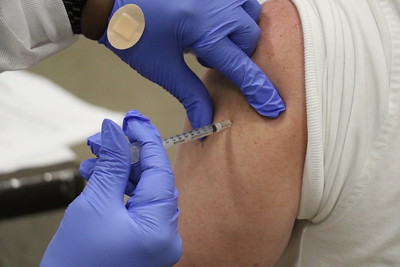Johnson County Community College in Overland Park, KS will pay its full- and part-time employees $250 to get the COVID-19 vaccine. The college hopes a high vaccination rate among its staff will support the college’s fall reopening plans.
In addition, JCCC has arranged to give its employees priority access to COVID-19 vaccination appointments through a local healthcare provider. Employees who receive the vaccination can elect to collect $250 in their paychecks. They can also donate the payment to the school’s meal program for food-insecure students. JCCC will offer the $250 incentive to student workers but has not yet made plans to vaccinate students.
As of April 10, Kansas reports a 33.2% vaccination rate, which includes residents who received at least one dose of a COVID-19 vaccine. According to the Centers for Disease Control and Prevention, Kansas has fully vaccinated 21.77% of its eligible adult population. In comparison, Michigan reports that as of April 8, it has vaccinate 39.7% of its eligible adult population with one dose of the COVID-19 vaccine. The CDC reports that Michigan has vaccinated 21.83% of its eligible adult population.
The vaccination rate in Washtenaw County exceeds the state average. As of April 8, 45.2% of eligible Washtenaw County residents received at least one dose of a COVID-19 vaccine. According to the Michigan Department of Health and Human Services, 27.9% of all eligible Washtenaw County residents have completed vaccination.
Employers can require employees to get a COVID-19 vaccine
Providing cash rewards to employees to get vaccines is both interesting and unnecessary. In fact, employers can make vaccination a condition of employment. According to the Equal Employment Opportunity Commission, employers must provide “reasonable accommodations” for employees who object to receiving the vaccination on medical or religious grounds. In the case of COVID-19, reasonable accommodations would likely include remote work, a separate work environment, mask-wearing, social distancing and other similar measures.
As I wrote yesterday, community colleges must determine how heavily their return-to-campus plans rely on vaccination. A relatively low vaccination rate cannot adequately protect either staff or students. That could require sudden campus closures to contain potential outbreaks and frequent returns to hybrid learning as cases surge.
We do not yet know the vaccination rate we need to control community spread. From experience with other vaccine-preventable diseases, we know that we will likely need a vaccination rate of 75%-95% to safely return to pre-COVID-19 operations. Without mandating vaccination as part of a return-to-campus plan, we cannot effectively control COVID-19 transmission.
While I don’t think we need to pay people to vaccinate, I do think colleges and universities need to make getting the vaccine as easy as possible. This may include partnering with the County or State to provide on-campus COVID-19 testing and vaccination services. The Administration may also need to rethink the campus Master Plan to prioritize on-site healthcare services.
It makes more sense than building a hotel or puttingg a dry cleaner in the Student Center Building.
Photo Credit: Mecklenburg County , via Flickr




















